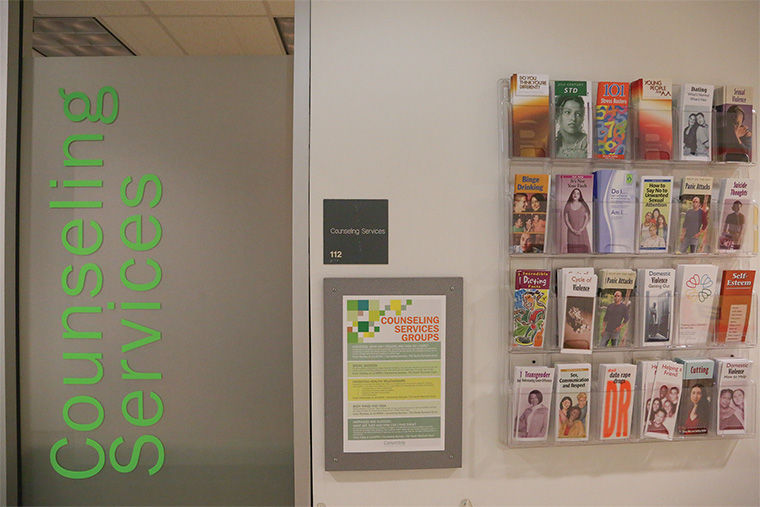Group therapy brings students more support
Counseling Services provides enrolled students with 10 free individual counseling sessions per academic year, while the group therapy sessions are unlimited.
February 16, 2015
Plymouth Court’s Fitness Studio hosts a wide range of athletic activities during the week, but the room takes a break for an hour each afternoon, becoming a haven for students seeking support.
Counseling services offers group therapy sessions for students every weekday at noon. The sessions are free and confidential, and they provide students with an opportunity to seek guidance without having to go through intake or consultation processes. Not bound by any formalities, students are free to attend these sessions whenever and however often they choose, according to E. Cordelia Miller Muhammad, a licensed staff therapist and leader of the group therapy sessions.
“The counseling services have always offered groups as a way to have an additional service to offer to students that is not requiring as much to get involved,” Muhammad said. “With groups, all students need to do is show up for the group topic that they’re interested in.”
For many students, college is the first time they are making decisions on their own, which can feel overwhelming and scary, Muhammad said. College is also a great time for students to gain confidence, she said.
“[Students can learn] to recognize that within the decision-making and being more responsible, things don’t always turn out the way you had hoped, but that’s not a negative thing,” Muhammad said. “That’s actually a growth opportunity.”
The sessions explore a different area of mental health each day of the week.
Group therapy sessions provide a completely different environment than more formal support options offered by counseling services, according to Muhammad.
“It’s one thing to learn things in a one-on-one session, but it’s another thing to learn how to apply and integrate those skills,” Muhammad said. “Usually in a group setting you can learn, but then you can apply and integrate at the same time. It can advance the learning.”
Muhammad said the sessions are not as widely attended as she would like them to be. Freshman cinema art + science major Jina Ballenger, who has never attended these sessions speculated this could be because students do not feel as comfortable sharing counseling experiences in a group setting.
“You don’t know how personal [a situation] is,” Ballenger said. “I don’t think [students] would be as open to a group of strangers as opposed to a one-on-one conversation with someone that you think you can confide in. You don’t know if you can confide in everybody.”
Despite this, Muhammad said some of the most successful groups have been those that have higher attendance rates. Last semester, it was a social success session held on Tuesdays.
“Having more people actually made the group more useful because then they could practice the skills with each other and support each other,” Muhammad said. “It just felt really good, one of the students said, to bounce ideas off of as well as get feedback, because the students are closer to their age.”
One of Muhammad’s goals this spring is to increase student participation in the sessions. The sessions are not widely publicized, partially because of the confidential nature of counseling services, she said.
“This is a place for students to explore some very vulnerable topics and find the help they need,” Muhammad said. “In protecting that and keeping this place safe, I think that I, as a staff member, sometimes function in a vacuum and it’s not as visible as it possibly could be.”
That could soon change. In connection with President and CEO Kwang-Wu Kim’s Feb. 3 tuition increase announcement, students were also notified of a $20 increase in student health fees for the 2015–2016 academic year. According to Kim, this money will be specifically used to help improve mental health support and increase student awareness for the college’s counseling services.
The health center fee was the only increase approved by the Student Government Association, as reported by The Chronicle on Feb. 9. Although the SGA typically has the chance to vote on these increases every three years, the organization held the vote early because of its important nature, said SGA president and sophomore art and materials conservation major Sara Kalinoski.
“Mental health is such a huge thing that students need, which is why we decided to vote on it,” Kalinoski said. “There’s going to be an awareness campaign so students know what it is and what it’s for.”








